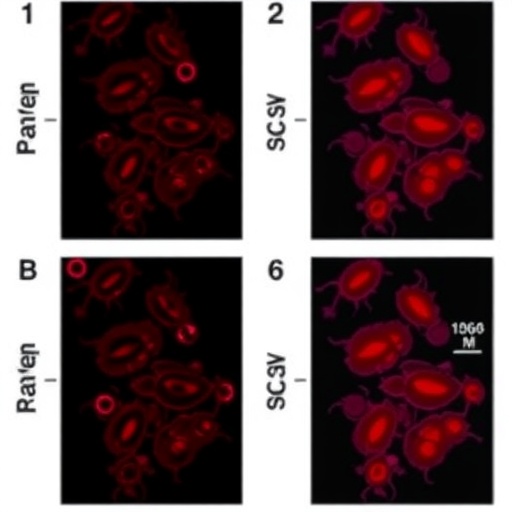Myeloid Progenitor Dysregulation: The Engine of Immunosuppressive Macrophages in Cancer
Cancer’s ability to evade the immune system is a significant hurdle in effective treatment. A key player in this evasion is the immunosuppressive tumor-associated macrophage (TAM). Recent research points to a crucial underlying mechanism: dysregulation of myeloid progenitors (MPs). This article delves into the complex relationship between MP dysregulation, TAM infiltration, and the resulting immunosuppressive tumor microenvironment. Understanding this process is vital for developing novel cancer immunotherapies.
The Role of Myeloid Progenitors in Tumor Development
Myeloid progenitors are hematopoietic stem cell descendants that differentiate into various immune cells, including macrophages, neutrophils, and dendritic cells. In a healthy individual, these cells contribute to immune surveillance and anti-tumor responses. However, within the tumor microenvironment, this process becomes significantly altered.
Dysregulation: The Key Difference
The tumor microenvironment, a complex milieu of cells and signaling molecules, profoundly influences MP differentiation. This influence is often dysregulated, leading to:
- Increased MP proliferation: Tumors release factors that stimulate excessive MP production.
- Skewed differentiation: Instead of generating anti-tumor immune cells, MPs preferentially differentiate into immunosuppressive TAMs.
- Impaired maturation: Even if some anti-tumor cells are produced, they may be functionally impaired, unable to effectively attack cancer cells.
This dysregulation shifts the balance in the tumor microenvironment, favoring immune evasion and tumor growth.
How Dysregulated MPs Drive Immunosuppressive TAMs
Several factors contribute to the generation of immunosuppressive TAMs from dysregulated MPs:
- Growth factors and cytokines: Tumor-secreted factors like colony-stimulating factors (CSF-1, GM-CSF) and TGF-β promote the differentiation of MPs into M2-polarized macrophages, a subtype known for its immunosuppressive functions.
- Metabolic reprogramming: The tumor microenvironment alters the metabolism of MPs, pushing them towards pathways that support immunosuppression.
- Epigenetic modifications: Changes in DNA methylation and histone modification patterns within MPs can permanently alter their differentiation potential, favoring the TAM phenotype.
The Immunosuppressive Effects of TAMs
Once formed, TAMs actively contribute to tumor progression through various mechanisms:
- Immune suppression: TAMs release cytokines (IL-10, TGF-β) that inhibit T cell activity and promote regulatory T cell (Treg) expansion, dampening anti-tumor immunity.
- Tumor growth promotion: TAMs secrete growth factors (VEGF, EGF) that stimulate angiogenesis (new blood vessel formation) and promote tumor cell proliferation and metastasis.
- Extracellular matrix remodeling: TAMs contribute to the remodeling of the extracellular matrix, creating a permissive environment for tumor invasion and spread.
Therapeutic Implications and Future Directions
Targeting MP dysregulation presents a promising avenue for cancer immunotherapy. Strategies under investigation include:
- Targeting CSF-1R: Inhibiting the CSF-1 receptor, crucial for macrophage differentiation and survival, can reduce TAM infiltration and enhance anti-tumor immunity.
- Modulating epigenetic modifications: Drugs that reverse epigenetic changes in MPs could restore their ability to generate anti-tumor immune cells.
- Combining therapies: Combining MP-targeted therapies with other immunotherapies, such as checkpoint inhibitors, may yield synergistic effects.
Further research is needed to fully elucidate the intricate mechanisms involved and to develop effective and safe clinical strategies.
Conclusion
The dysregulation of myeloid progenitors is a critical driver of immunosuppressive TAMs in the tumor microenvironment. Understanding the molecular mechanisms underlying this process is essential for developing novel therapeutic approaches that effectively harness the power of the immune system to fight cancer. Targeting MP dysregulation offers a promising strategy to reprogram the tumor microenvironment and enhance anti-tumor immunity. Continued investigation into this area holds significant potential for improving cancer treatment outcomes.
Frequently Asked Questions (FAQs)
Q1: What are myeloid progenitors? A1: Myeloid progenitors are immature cells in the bone marrow that differentiate into various immune cells, including macrophages, neutrophils, and dendritic cells.
Q2: How do TAMs contribute to cancer progression? A2: TAMs promote tumor growth by releasing growth factors, suppressing anti-tumor immune cells, and remodeling the extracellular matrix.
Q3: What are some potential therapeutic targets related to MP dysregulation? A3: Potential targets include CSF-1R, epigenetic modifiers, and pathways involved in MP differentiation and polarization.
Q4: Are there any clinical trials investigating therapies targeting MP dysregulation? A4: Yes, several clinical trials are underway investigating therapies targeting CSF-1R and other pathways involved in MP dysregulation in various cancer types. It is advisable to consult clinicaltrials.gov for the most up-to-date information.
Q5: What is the difference between M1 and M2 macrophages? A5: M1 macrophages are pro-inflammatory and anti-tumor, while M2 macrophages are anti-inflammatory and immunosuppressive. Tumors often favor the recruitment and differentiation of M2 macrophages (TAMs).




